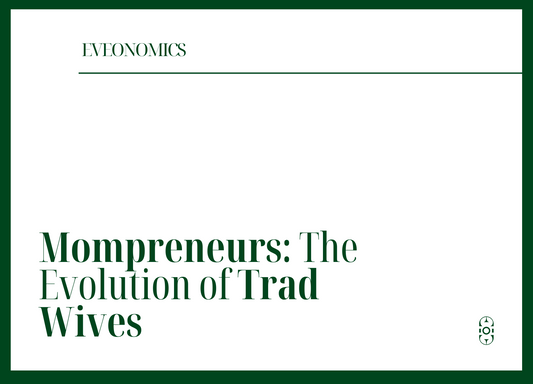In a society that glorifies consumption and equates prosperity with public displays of success, frugality often stands as a quiet rebellion. It is not a badge of deprivation or an act of self-denial; it is a choice—a deliberate, almost audacious decision to live life with clarity and purpose.
Morgan Housel, author of The Psychology of Money, captures this ethos perfectly. He argues that frugality isn’t about sacrifice; it’s about self-control. It’s a mindset that prioritises long-term stability over fleeting gratification. In the landscape of personal finance, it is a strategy with a whispering power—unassuming yet transformative.
The Philosophy of Frugality
Frugality defies the zeitgeist of accumulation. It asks us to slow down, to interrogate our choices, and to recalibrate our relationship with money. It’s not about living with less for the sake of it; it’s about making room for more—more freedom, more security, more peace.
Housel captures the essence of this beautifully: “The ability to save is the gap between your ego and your income.” That gap is not just a financial buffer; it’s a sanctuary from the constant tug of societal expectations. Frugality isn’t punitive. It’s liberating.
The Practical Benefits of Living Below Your Means
1. Building Wealth Through Simplicity
When you consistently spend less than you earn, you create a surplus—a quiet revolution against the tyranny of financial precarity. Invest that surplus wisely, and over time, the humble trickle becomes a stream. For example, setting aside £250 a month and investing it at a modest 7% annual return could grow into a six-figure sum within a few decades.
2. Reducing Stress, One Pound at a Time
There’s an unmistakable lightness in knowing you’re not one emergency away from financial ruin. Frugality creates a cushion—not just for your bank account but for your mental well-being.
3. Freedom to Choose
Perhaps the most seductive promise of frugality is freedom. The freedom to leave a job that no longer serves you, to pursue a passion project, or simply to breathe without the weight of debt pressing on your chest. Simplicity buys options.
How to Embrace Frugality Without Losing Yourself
1. Start with a Plan
At the heart of frugality lies intentionality. Draft a budget—not as a set of rigid rules but as a guide to align your spending with your values.
2. Question Everything
Frugality isn’t about austerity; it’s about discernment. Before opening your wallet, ask yourself: “Is this necessary? Does it add value to my life?” The goal isn’t to deny pleasure but to redefine it.
3. Automate Your Savings
Let technology be your accomplice. Automate transfers to savings or investment accounts so that frugality becomes second nature, not an afterthought.
4. Embrace Minimalism
Minimalism isn’t just a buzzword; it’s a philosophy that champions quality over quantity. Clear your home and your mind of excess. In doing so, you’ll find clarity and focus.
The Hidden Rewards of Living Below Your Means
Frugality rewards you in ways that transcend the financial.
Freedom from Materialism
To live frugally is to step off the relentless hamster wheel of consumerism. It’s a declaration that you will not be defined by possessions but by purpose.
Empowerment Through Control
There’s power in saying, “I have enough.” Frugality isn’t about lack; it’s about abundance—the abundance of choice, control, and confidence.
Peace of Mind
In a world riddled with uncertainty, frugality is a balm. It offers assurance that, come what may, you are prepared.
Frugality Isn’t Cheapness
Let’s address the elephant in the room: frugality is often mistaken for cheapness. But the distinction is critical. Cheapness is about cutting corners; frugality is about making thoughtful choices. It values quality, sustainability, and ethics. Frugality doesn’t strip life of joy; it amplifies it by focusing on what truly matters.
A Long-Term Perspective
Housel reminds us that financial success is not about luck or income—it’s about behaviour. “Spending money to show people how much money you have is the fastest way to have less money,” he notes. Frugality is the antidote to this trap.
It allows you to harness the power of compounding—not just of wealth but of opportunities. Every pound saved is a step closer to independence. Every unnecessary expense avoided is a quiet act of rebellion against the pressure to conform.
Reclaim Simplicity
Imagine a life untethered from the stress of mounting bills or the anxiety of living paycheque to paycheque. Imagine being able to make decisions based on desire and purpose rather than financial necessity.
This is the promise of frugality. It’s not about denying yourself; it’s about empowering yourself. Start with one small change—brew your coffee at home, reassess a recurring expense, or simply pause before your next purchase. Each choice, no matter how modest, brings you closer to a life of intention and freedom.
Living below your means is more than a financial strategy. It’s a philosophy of living with clarity, purpose, and, ultimately, power.
Conclusion
Frugality doesn’t ask us to sacrifice—it invites us to rethink. To live simply is to live richly, not in material possessions but in freedom, peace, and opportunity. The question is not what you’re willing to give up but what you stand to gain.
*This article is for general information purposes only and is not financial advice. We are not licensed financial advisors. Please consult a qualified professional before making any investment decisions to ensure they fit your specific financial situation.





